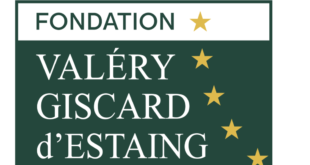Steve Meier is a career adviser for lawyers in Brussels. A former lawyer himself, he is the founder of « Steven Meier Specialist Recruitment », a Brussels-based recruitment firm. He and his business partner Dave Hemingway focus on the recruitment of European lawyers, and he provides us with a few tips on how to put your best foot forward when trying to break into the Brussels legal market.
Le Petit Juriste : Can we define your company as a recruitment firm?
Steve Meier : Well, we are certainly a recruitment firm, but we are not like many others; we operate differently. We consider ourselves to be professionals who provide career advice and guidance. Unlike many recruitment firms that think their job is to collect a lot of CVs, we have taken another path, one that provides customized advice and counsel for clients and candidates alike. As we have a lot of experience dealing with how candidates should best present themselves, including how to prepare CVs, we are occasionally asked to speak on the subject to law students at, for example, the College of Europe and other universities around Belgium.
LPJ : What are the particularities of the Brussels legal job market?
SM :The most important thing about the Brussels market is its competitiveness. We know from experience that successful young lawyers in Brussels must be academically accomplished, typically possessing a law degree with honors; moreover, it is imperative that their education also include an Ll.M. in EU law. There are a few Ll.M. programs that are widely respected, and only students who graduate with the best marks will typically be interviewed by the top international law firms. The competition for jobs in Brussels is very stiff!
LPJ : How is the market going these days?
SM :Given the nature of the Brussels market, it is somewhat protected from wild swings that affect other legal markets. Even when things are slow, there is always a certain amount of demand from a number of law firms. Given that some young lawyers are interested in spending only a couple of years working in Brussels before going back to their home jurisdictions, law firms are almost always looking for talented and smart lawyers. The market is better than it has been in quite some time. It was very soft between 2010 and 2012, but things started to pick up thereafter.
LPJ : Which area is the most popular and which has good perspectives for the future?
SM :At the moment, most young lawyers in Brussels are hired to practice EU competition law. When I was starting out as a lawyer many years ago, trade law was much more important than competition law, but now the opposite is true. There are still opportunities for trade lawyers, but not as many as there are for competition lawyers. There is increasing demand for regulatory lawyers, including those in life sciences, pharmaceuticals and medical devices, chemicals, data protection and so forth. If a young lawyer has a mind that enjoys detailed and technical issues, regulatory law may be a practice area to consider. Looking forward, it seems to be a genuine growth area.
LPJ : What would be your message to young lawyers who want to use a legal recruitment firm to find a job?
SM : One word: don’t! Until you have two or three years of experience, young lawyers should not use the services of a recruiter — even us! The use of a recruiter too early in your career is not in your best interest and often is, in fact, detrimental to your job search. Certainly in Brussels, where there are so many lawyers looking for comparatively fewer jobs, law firms are loathe to pay any recruiter a fee to hire someone who can (and should!) apply directly. We typically urge young lawyers to find their first jobs themselves. Although we typically begin to collaborate formally with lawyers when they have two or three years of experience, we are always happy to speak with promising young lawyers to provide a degree of guidance and to give them the benefit of our experience, including preparation of their CVs. I was once a young lawyer and wish that I had had someone to speak to; that being so, we are always glad to help other young lawyers get started. I am sad to say that there are disreputable recruiters in the market. Their focus is generating fee revenue for themselves, not helping candidates make smart and informed decisions. When working with recruiters, lawyers must ensure that they maintain control of the process.
LPJ : What is your advice to French students who want to apply for a job in the EU market? How to be perceived as the best applicant?
SM : The main piece of advice for you is to prepare a strong and solid foundation while you are students. Obviously, you need to work hard to get the best grades you can, but you also need to get involved in extracurricular activities such as moot court and student government. The idea is to show that you are prepared to do more than just the bare minimum required to pass your courses. You want to set yourself apart from all the other candidates who will be seeking work. Specific to Brussels, I would stress that a young French lawyer with only a law degree should not waste time applying for work in Brussels; it is simply not going to happen! If you want a Brussels-based career, you really need to obtain an Ll.M. in European law. This is essential for any lawyer seeking to enter the Brussels market. There are a few programs that are especially appreciated by Brussels firms, in particular those at the College of Europe and the Institut des Etudes Européennes, where classes are in both English and French, as well as King’s College in London. Brussels is very cosmopolitan, with lawyers from literally dozens of countries speaking dozens of different languages, but the lingua franca tends to be English (although French is a close second). Young lawyers seeking to improve their English are sometimes tempted to pursue an Ll.M. in the United States. There is certainly nothing wrong with that, as it can provide a wealth of experiences and opportunities that you will cherish for many years; indeed, I know of no foreign lawyer who, having studied in the US, regrets the time spent there. However, while an American Ll.M. will no doubt help improve your English, it is a very expensive means of doing so. Additionally, I would caution that an American Ll.M. may not necessarily provide the best educational foundation for a Brussels-based practice.
My best piece of advice? Follow your bliss. Do what makes you happy. If you do something that you really enjoy, you will be successful, irrespective of how you may define “success”.
Propos recueillis par Ines Rodriguez
 Le petit juriste Site de la revue d'actualité juridique
Le petit juriste Site de la revue d'actualité juridique





